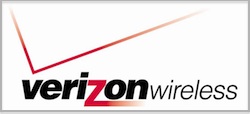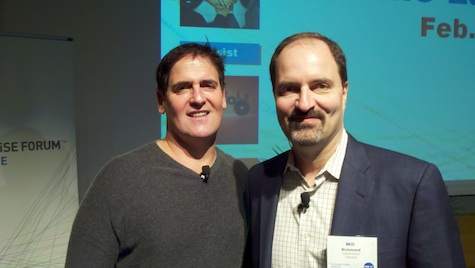-
Quite a Week for M&A In Online/Mobile Video
It's been quite a week for M&A in online and mobile video. On Monday, KIT Digital announced it was acquiring Kewego, KickApps and Kyte. Then today Cisco bought Inlet Technologies to flesh out their Videoscape platform and Tremor Media reportedly acquired mobile ad manager Transpera. That's a lot of activity for just one week, and points to how key players are jockeying for bigger slices of the online and mobile video market. The trend will no doubt continue.
What do you think? Post a comment now (no sign-in required).
Categories: Deals & Financings
Topics: Cisco, Inlet, Kewego, KickApps, KIT Digital, Kyte, Transpera, Tremor Media
-
Hey Jason Kilar: You Should Go Back to Amazon and Compete Against Netflix
Not that Hulu's CEO Jason Kilar has asked for or needs my career advice, but in light of his controversial "speaking truth to power" blog post on the future of TV, which has wags all over the industry saying his tenure at Hulu is all but over, I'll offer it up anyway: he should go back to Amazon (where he was prior to Hulu) and run their soon-to-be-launched video subscription business that will compete directly against Netflix.
Categories: Aggregators, People
Topics: Amazon, Hulu, Jason Kilar, Netflix
-
What's Up With Verizon Wireless Throttling Its Heaviest Users?
Verizon's well-orchestrated buzz-building campaign for its iPhone launch yesterday hit a speed bump as stories began to circulate that even though it was promoting an unlimited data plan as a differentiator, it would actually throttle its heaviest users. Verizon's official policy is that "if you use an extraordinary amount of data and fall within the top 5% of Verizon Wireless data users we may reduce your data throughput speeds periodically for the remainder of your then current and immediately following billing cycle to ensure high-quality network performance for other users at locations and times of peak demand."
throttle its heaviest users. Verizon's official policy is that "if you use an extraordinary amount of data and fall within the top 5% of Verizon Wireless data users we may reduce your data throughput speeds periodically for the remainder of your then current and immediately following billing cycle to ensure high-quality network performance for other users at locations and times of peak demand."
Topics: iPhone, Verizon Wireless
-
Mixing It Up With Mark Cuban At MIT
Last night's panel at MIT with Mark Cuban, boxee CEO/founder Avner Ronen and Akamai CEO Paul Sagan and yours truly, moderated by Prism's Woody Benson, was a freewheeling affair, with lots of controversy and plenty of humor. The topic was "IPTV: The Scrum for the Last Six Feet" and I think we covered all the relevant bases related to devices, over-the-top, content creation, sports and even what TV shows our kids are allowed to watch. For those wondering what compelled Mark to make the trek all the way to MIT, note the Mavs take on the Celtics at the Garden tonight. Next week I'll make the video available, and also highlight some of the fundamentally different ways Mark and I see the TV landscape unfolding.
Categories: Events
Topics: Mark Cuban, MIT Enterprise Forum
-
Merrill Lynch Hits the Mark With In-Banner Video Financial Webcast
On the NYTimes.com home page yesterday I was intrigued by a rich media ad (see below) in the right column that expanded to play a video of a roundtable discussion moderated by Merrill executive Sallie Krawcheck. The ad epitomizes how online video lets brands go beyond the traditional 30-second TV spot to deeply engage their target audiences. Everything about the ad is well executed: high-quality video that can be viewed in full screen mode, professional-looking though low-key set design, chapter headings and durations that can be jumped to, links to Facebook, Twitter, etc. to share and placement on a well-trafficked, upscale-leaning site.
Categories: Advertising
Topics: Merrill Lynch
-
Comcast's iPad Streaming is a Milestone for Pay-TV
This week Comcast began streaming certain shows to their Xfinity TV iPad app. I've watched a few shows already and played around a bit. My reaction is mostly positive; the app is fast (though there's a slight blank screen delay before playback begins) and browsing is straightforward. The biggest issue, as others have noted this week, is minimal content selection. True, when compared to Netflix, for example, Xfinity TV still looks thin, despite the 3,000+ hours Comcast says is there.
Categories: Cable TV Operators, Devices
-
Super Bowl Advertisers Finally Tapping Into Power of Social Media and Online Video
A great article in today's NY Times shows how numerous Super Bowl advertisers have been building excitement for their ads through social media, and in some cases by already releasing the ads in their entirety. It's the right approach, though a little late in coming. Deep in the pre-VideoNuze archives is "The $10 Million Super Bowl Ad," which I wrote back in 2006, asserting that online video would dramatically enhance the value of these expensive spots. Super Bowl spots have risen in price since, to $2.8-$3.0 million apiece, and in the very long-term I'd maintain they still may get to $10 million as the Super Bowl further separates itself as the last mass broadcast event. But regardless of the price, the key is extracting the most value from them; that's what social media and online video do best.Categories: Advertising, Sports
Topics: Super Bowl
-
VideoNuze Report Podcast #86 - Feb. 4, 2011
Daisy Whitney and I are pleased to present the 86th edition of the VideoNuze Report podcast, for February 4, 2011.
In today's podcast we discuss the content deal announced this week between Comcast and Time Warner that allows delivery to VOD, Xfinity TV online and iOS/Android tablets and smartphones. As I wrote in "Comcast-Time Warner Deal Shows Promise and Challenges of TV Everywhere," while the deal should be a template for others between pay-TV operators and cable TV networks, it also highlights many challenges that remain in realizing the companies' TV Everywhere vision.
Click here to listen to the podcast (12 minutes, 17 seconds)
Click here for previous podcasts
The VideoNuze Report is available in iTunes...subscribe today!Categories: Cable Networks, Cable TV Operators, Podcasts
Topics: Comcast, Time Warner


